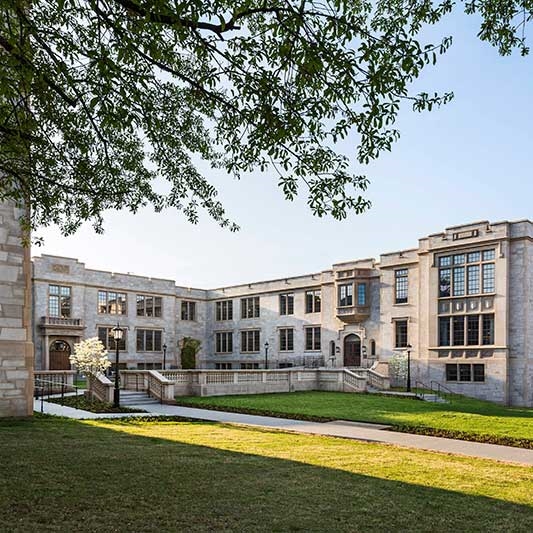
In today's workforce, increasingly global in reach with online interactions shrunk to tiny boxes in Zoom, mastering a second language — or two — is more important than ever before. This semester's Honors College Supper Club will explore the benefits of "Speaking Superpowers" from 5:30-7 p.m. on Tuesday, March 15, in the Honors Student Lounge, room 130, Gearhart Hall. Dinner will be hosted by Honors College Dean Lynda Coon, and faculty from the Department of World Literatures, Languages and Cultures will be on hand to answer questions and spark conversation. Honors students may sign up by filling out this online interest form; participation is limited to 15 students.
Building Bridges – and Cars
Professionals who work in diverse careers around the world know that they should be bi- or trilingual to participate in international teams.
"It helps to build a good relationship, and to show that you, the American, care about the other culture and the other country in the other language," said Linda Jones, chair of the Department of World Literatures, Languages and Cultures. "Because when we only speak English, there's a wall that we can never penetrate. But when we can speak a second or a third language, then we can step into their world."
More immediately for U of A students, learning a second language can create amazing opportunities for international study and internships. Take Nicholas Broadbent, an honors mechanical engineering major with a passion for cars, who seized on the U of A's International Engineering Program when he was a student here.
"When he studied at the University of Darmstadt, he was able to work on their Formula One team, and then he did an internship with Mercedes," said Kathleen Condray, an associate professor of German who helped Broadbent prepare for this experience. "And when he was looking at doctoral programs, he said all of them really wanted to talk about his experiences in Germany." Ultimately Broadbent accepted a $330,000 fellowship to pursue a doctorate in mechanical engineering at Stanford, where he is working on developing machine learning algorithms to enhance the safety and performance of autonomous vehicles. [Read more about Broadbent in A+, the Honors College magazine.]
Supporting Research and Finding Jobs
Picking up a second language also opens the door to exciting research taking place here in Arkansas. For example, undergraduate and graduate students are currently creating short, under-two-minute films to highlight historical persons who migrated to Arkansas. One such person to be featured is Marie Jeanne, born in the late 1700s during the Spanish regime of Arkansas Post, the state's earliest European settlement.
"She was freed from slavery and created a tavern at Arkansas Post," Jones said. "She had a reputation on the Mississippi River for her cooking and her graciousness and her hospitality. … There's an African American scholar who has referred to her as probably the first African American female pit master in the United States; that's how I became interested in her. This is an Arkansas story that we don't know."
In addition to digital humanities projects such as this one, foreign language study prepares students for jobs, "not only abroad but also for multinational companies based in the United States and universities worldwide," Condray emphasized. Students do not necessarily need to find space in their schedules for an entire major in classics or modern languages to pick up a second or third language, she added.
"Many honors students are already taking languages as part of their honors core. So they would just need five extra courses on top of that for a minor, which most students can pick up in a single calendar year: a class in the fall, another in the spring, then study abroad in the summer." Students in every language can learn fundamental skills at the U of A that allow them to pursue further language learning abroad or in graduate school.
Students at the U of A can learn Arabic, Cherokee, Chinese, French, German, Greek, Italian, Japanese, Latin, Portuguese, Russian and Spanish. Additional topics to be discussed at this event include international certification exams that prove one's level of proficiency and unique opportunities and resources that can help students pursue graduate school abroad.
Topics
Contacts
Kendall Curlee, director of communications
Honors College
479-575-2024, kcurlee@uark.edu